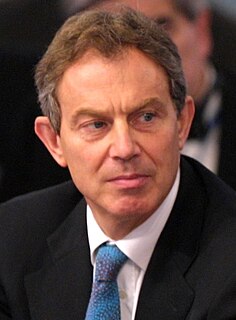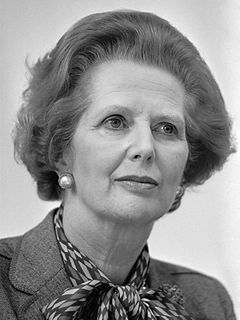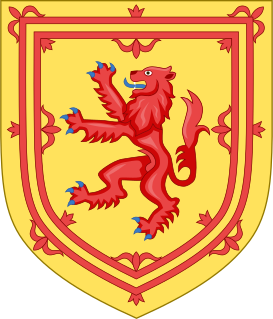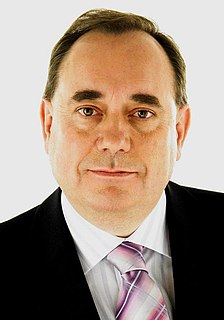Related Research Articles

The 2001 United Kingdom general election was held on Thursday 7 June 2001, four years after the previous election on 1 May 1997, to elect 659 members to the House of Commons. The governing Labour Party was re-elected to serve a second term in government with another landslide victory, returning 412 members of Parliament versus 418 from the 1997 general election, a net loss of six seats, though with a significantly lower turnout than before—59.4%, compared to 71.3% at the previous election. The number of votes Labour received fell by nearly three million. Tony Blair went on to become the first Labour Prime Minister to serve two consecutive full terms in office. As Labour retained almost all of their seats won in the 1997 landslide victory, the media dubbed the 2001 election "the quiet landslide".

The 1979 United Kingdom general election was held on Thursday 3 May 1979 to elect 635 members to the British House of Commons.

The 1983 United Kingdom general election was held on Thursday 9 June 1983. It gave the Conservative Party under the leadership of Margaret Thatcher the most decisive election victory since that of the Labour Party in 1945, with a majority of 144 seats.

The politics of Scotland operate within the constitution of the United Kingdom, of which Scotland is a home nation. Scotland is a democracy, being represented in both the Scottish Parliament and the Parliament of the United Kingdom since the Scotland Act 1998. Most executive power is exercised by the Scottish Government, led by the First Minister of Scotland, the head of government in a multi-party system. The judiciary of Scotland, dealing with Scots law, is independent of the legislature and the executive. Scots law is primarily determined by the Scottish Parliament. The Scottish Government shares some executive powers with the Government of the United Kingdom's Scotland Office, a British government department led by the Secretary of State for Scotland.

The Unionist Party was the main centre-right political party in Scotland between 1912 and 1965.

The Glasgow Camlachie by-election was held on Wednesday 28 January 1948, following the death of the sitting Member of Parliament, Campbell Stephen.

The 2011 Scottish Parliament election was held on Thursday, 5 May 2011 to elect 129 members to the Scottish Parliament.
The Progressive Party was a municipal political organisation that operated in several Scottish cities and towns in the 20th century. It was based on tacit anti-Labour co-operation between the Unionist Party, Scottish Liberals and independents.
There was a by-election for Dundee East, in Scotland, on 1 March 1973. It was one of three UK parliamentary by-elections held on that day. It was caused by the appointment of George Thomson as a European commissioner. George Machin retained the seat for Labour, but only narrowly. There was a strong showing by the Scottish National Party, which prefigured their serious breakthrough at the Govan by-election later in the year, and the two general elections of 1974.
The Argyll by-election of 12 June 1958 was held after the death of Conservative Party MP Duncan McCallum.

The Linlithgowshire by-election was a Parliamentary by-election. It returned one Member of Parliament (MP) to the House of Commons of the United Kingdom, elected by the first past the post voting system.
The Dundee West by-election was held on 21 November 1963 due to the death of the incumbent Labour MP John Strachey. It was won by the Labour candidate, Peter Doig.

The 1928 Ilford by-election was a parliamentary by-election for the British House of Commons constituency of Ilford, London on 23 February 1928.
The 2015 United Kingdom general election debates were a series of four live television programmes featuring the leaders of seven main British parties that took place during the run-up to the general election. They each featured different formats and participants.

An Election to the Edinburgh Corporation was held on 3 November 1936, alongside municipal elections across Scotland. The election took place midst an increasingly sectarian political climate, with hardline Protestant and anti-Catholic political parties being on the rise in Glasgow and Edinburgh in the 1930s. The Protestant Action Society (PAS); Edinburgh's far-right Protestant grouping which had inspired a sectarian riot the previous year, won 31% of the vote and got 5 new members elected. The PAS had won 24% in the previous years election.

The 1933 Glasgow Corporation elections were held on 7 November 1933. The results were devastating for the Moderates, who lost control of the Corporation to Labour for the first time, despite socialist candidates making gains in Glasgow at successive general elections. Labour’s victory came as a surprise, even to the party itself, which had already begun blaming its anticipated defeat on vote-splitting caused by the presence of the ILP & the Communists. Labour's dominance of the Corporation would continue, nearly unbroken, to the present day.
Local elections took place in the United Kingdom in 1969.
The 1896 United Kingdom local elections took place in late 1896 for municipal councils, as well as Rural districts. Municipal elections were held across England and Wales on Monday 2 November, with Scotland holding municipal elections the following day. Municipal elections in Ireland took place later that month, on Wednesday 25 November.
References
- ↑ Smyth, James. J. "Resisting Labour: Unionists, Liberals, and Moderates in Glasgow between the Wars" (PDF). The Historical Journal. Cambridge University Press. Retrieved 4 April 2015.